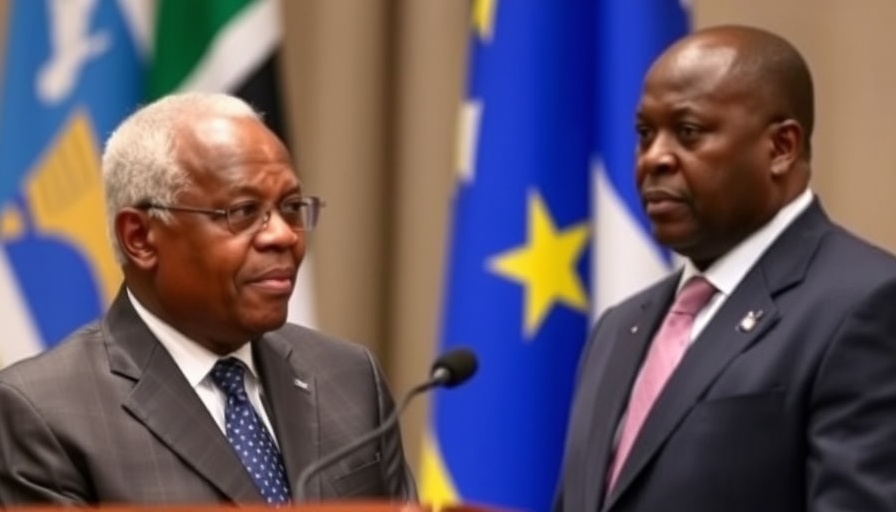
Potential New Mediation Track for Eastern Congo
The landscape of diplomatic engagement in the eastern Democratic Republic of Congo (DRC) may soon undergo a significant shift as African Union (AU) chairman João Lourenço has proposed Togolese President Faure Gnassingbé to step into the mediator role previously held by him. This proposition arises amid ongoing humanitarian crises, vying peace processes, and the role of regional powers in the increasingly complex conflict dynamics.
Shifting Roles in Mediation: A Closer Look
In light of the recent merger of the Luanda and Nairobi processes, the AU's decision to nominate Gnassingbé mirrors a strategic attempt to rejuvenate the peace talks, ensuring they remain relevant and impactful. While President Lourenço emphasized positive initial consultations, questions still linger regarding the intricacies of how Gnassingbé's mediation might fit into the already established frameworks. His leadership could either renew efforts to revitalize the current negotiations or create a fresh avenue altogether, with implications for peace and stability in the region.
Humanitarian Context: The Reality on the Ground
The DRC faces dire humanitarian challenges exacerbated by protracted conflict. President Lourenço's acknowledgment of the worsening situation serves as a stark reminder of the urgent need for solutions. The United Nations has continuously warned about the implications of this instability on civilians and regional peace, a reality that must drive the new mediation efforts. Addressing these challenges from the diplomatic table is paramount; therefore, the nomination of President Gnassingbé is seen as a strategic rather than a symbolic gesture.
Implications for Global and Regional Trade in Africa
This shift in leadership in the Congo talks is crucial, especially as the nation’s stability profoundly affects global trade relationships with neighboring countries and international partners. Investors and business leaders focusing on Africa’s role in the global economy must be attuned to how these negotiations and their outcomes may influence trade policies and governance reforms across the continent. Additionally, the ongoing geopolitical competition between major powers in Africa, including the EU and China, adds a layer of complexity to these negotiations.
In conclusion, the proposed mediation by President Gnassingbé, pending formal approval by the AU Assembly, invites a renewed commitment to resolving conflict in the DRC while highlighting the interconnectedness of humanitarian issues and international investment landscapes in Africa. Stakeholders across the continent and beyond should stay informed, as the evolving dynamics may impact Africa’s economic and political landscape significantly.
 Add Row
Add Row  Add
Add 


 Add Row
Add Row  Add
Add 

Write A Comment